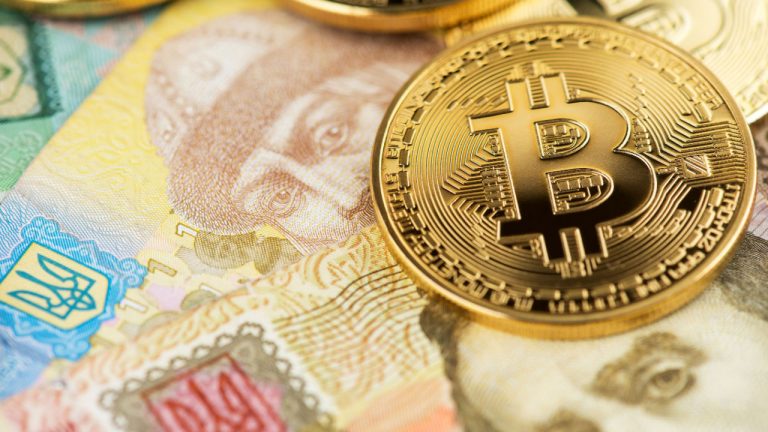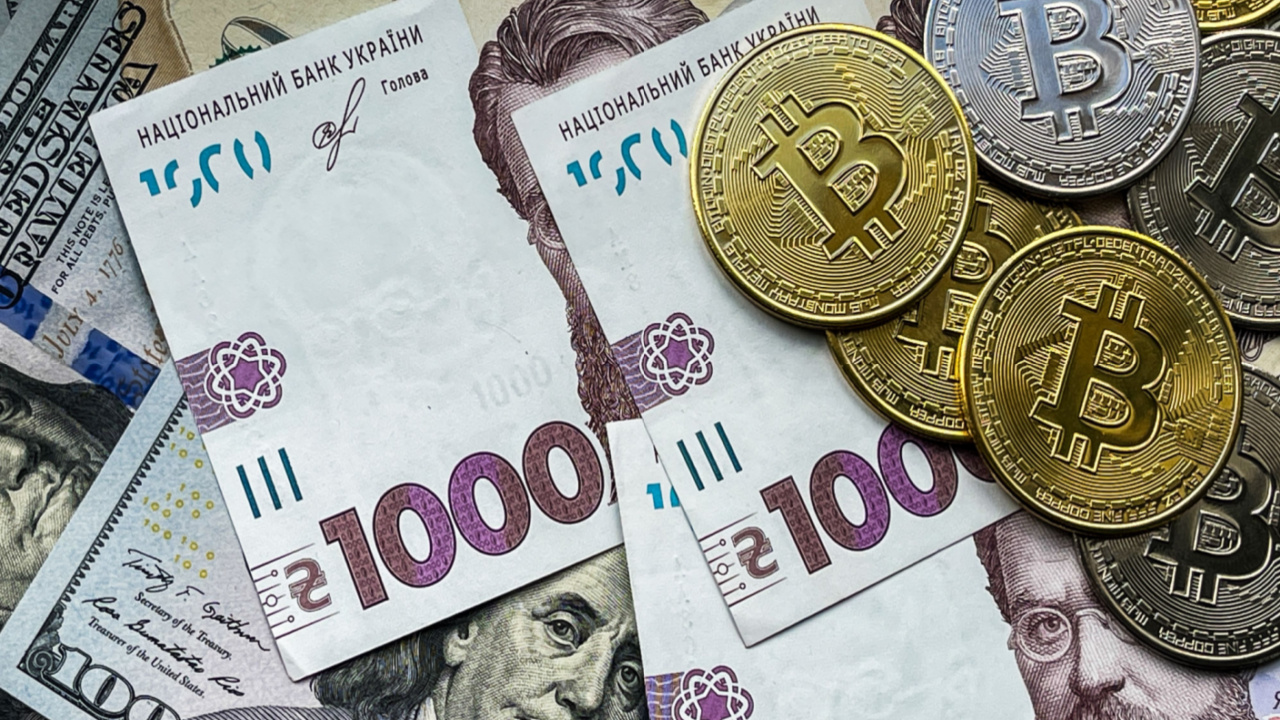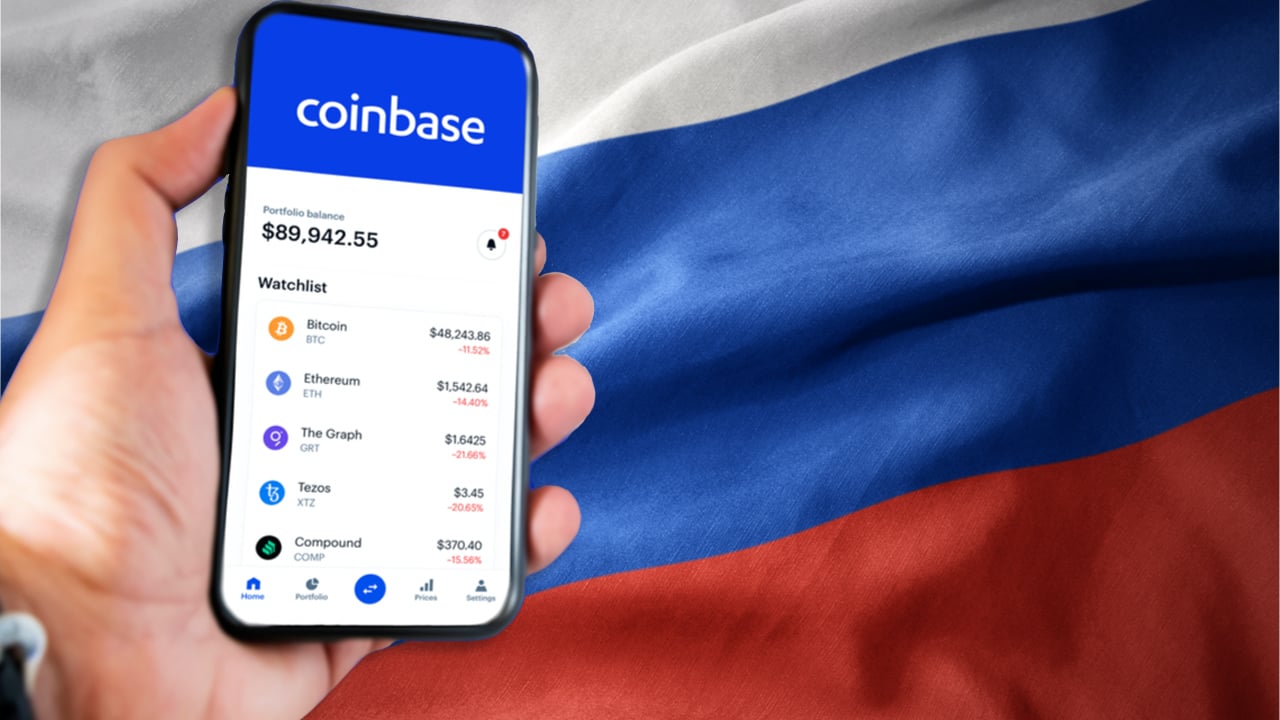 Major cryptocurrency exchanges operating in Ukraine have temporarily suspended operations with hryvnia bank cards. The measure stems from restrictions imposed by the country’s central bank, Binance and Kuna indicated in comments for crypto media. Ukrainians Unable to Trade Crypto Assets Using Cards in National Currency The world’s largest crypto exchange, Binance, and a leading Ukrainian […]
Major cryptocurrency exchanges operating in Ukraine have temporarily suspended operations with hryvnia bank cards. The measure stems from restrictions imposed by the country’s central bank, Binance and Kuna indicated in comments for crypto media. Ukrainians Unable to Trade Crypto Assets Using Cards in National Currency The world’s largest crypto exchange, Binance, and a leading Ukrainian […] The central bank of Ukraine has adjusted the fixed exchange rate of the national currency in U.S. dollars and introduced stricter limits on hryvnia transactions for citizens. The measures are likely to turn more Ukrainians to cryptocurrencies, according to a representative of the local crypto sector. War-Time Hryvnia Limits Expected to Increase Interest in Cryptocurrency […]
The central bank of Ukraine has adjusted the fixed exchange rate of the national currency in U.S. dollars and introduced stricter limits on hryvnia transactions for citizens. The measures are likely to turn more Ukrainians to cryptocurrencies, according to a representative of the local crypto sector. War-Time Hryvnia Limits Expected to Increase Interest in Cryptocurrency […]
According to Ganna Voievodina, Ukraine’s law on digital assets was adopted “just in time” for companies handling crypto and a government looking for tax revenue.
While many parts of Ukraine are still facing threats from Russia’s military, some residents, industry leaders and government officials are turning to digital assets for help in relocating people, funding humanitarian aid projects and getting supplies to its own soldiers.
On Feb. 17, exactly one week before Russian forces began their attack on Ukraine, the country’s legislature adopted the “On Virtual Assets” bill. Ukrainian President Volodymyr Zelenskyy later signed the bill into law, establishing a legal framework for Ukraine to operate a regulated crypto market.
Ganna Voievodina, chief legal officer of Ukraine-based crypto exchange Kuna and one of the bill's authors, told Cointelegraph that the ramifications of the legislation came at a critical time when the country needed legal access to crypto.
“A lot of Ukrainian government [officials] have a lot of funds in their accounts, but according to the laws, they couldn’t invest in cryptocurrency,” said Voievodina. “Now they can exchange, they will have opportunity to take their funds to buy crypto, to invest and to buy some trades and some goods for the Ukrainian army, for Ukrainian people, because we understand that cryptocurrency is much easier to be invested in any legal goods.”
Since Russia’s invasion of Ukraine, crypto users from around the world have sent around $70 million in digital asset donations to government wallet addresses through a recently launched website. Michael Chobanian, founder of Kuna and president of the Blockchain Association of Ukraine, told U.S. lawmakers on March 17 that it only took “about 10 minutes” to set up crypto donations for the government, while arranging fiat transfers through the National Bank of Ukraine took roughly 10 days.
“The cryptocurrency community made a lot of donations to the government and people to support them in such bad times that we have faced, and never could imagine that we could face,” said Voievodina. “A lot of digital currency exchanges from all over the world, including Binance, including Kuna, including even Coinbase, [...] they helped our country with donations.”
Related: Tracked crypto donations to Ukraine surge to $108M as Kraken, Bored Ape joins in
According to Voievodina, the Ukrainian law could seemingly be broken down into two laws applied to companies handling crypto and taxes around digital assets. She said the law would be akin to rules from the Financial Action Task Force, applied to virtual asset service providers, including digital wallet providers, exchanges, financial intermediaries and crypto transfer services in Ukraine. Firms providing crypto-related services have to register with the government and be in compliance with Anti-Money Laundering regulations.
In Ukraine, the National Securities and Stock Market Commission and the country’s central bank act as regulators for financial products, including digital assets. According to Voievodina, regulators coordinated with lawmakers to ensure that the digital asset tax law will be adopted before establishing the regulatory framework. She said a draft of the tax law suggested crypto traders be subject to lower taxes for five years following the adoption of the legislation — 5% of annual profit compared with 18% for many other cases. However, the law is subject to review by Ukraine’s parliament.
“It was very symbolic that [the law] was adopted right before the war,” added Voievodina.
Though Zelenskyy might have signed the bill into law quickly, even in the absence of the invasion of the Russian military, according to Voievodina, it was “just in time” to simplify the legal framework and allow people to supply goods for the army using digital assets. She said Chobanian was “responsible for all the funds” being donated to the government in crypto, which he uses to buy food, supplies or fiat in accordance with requests from the Ministry of Digital Transformation.
Let us update you on the crypto donations. Our Crypto Fund has reached $60 mln. Every donation matters. Every crypto matters! Thank you, crypto people! https://t.co/4X6d8EwXTD
— Міністерство цифрової трансформації України (@mintsyfra) March 20, 2022
“The war didn’t change anything, just people with crypto became more visible because this business has more profit and opportunity to help the country,” said Voievodina. “These people are not enemies of financial systems — they are friends of Ukraine, and they can help it. Principally, the war didn’t change the cryptocurrency world; the cryptocurrency world will help in this war.”

Users have sent more than $48 million USD in crypto to government wallet addresses, roughly 24% of the platform’s $200 million goal.
Crypto exchanges FTX and Kuna and staking platform Everstake have partnered with Ukrainian government officials to launch a donation website for users wishing to send crypto to help the country and its people.
In a Monday announcement, Ukraine’s Ministry of Digital Transformation said the government had launched Aid for Ukraine, a platform that accepts donations in Bitcoin (BTC), Ether (ETH), Tether (USDT), Polkadot (DOT), Solana (SOL), Dogecoin (DOGE), Monero (XMR), Icon (ICX), and Neo (NEO) “to support people in their fight for freedom.” Many parts of the country have been under attack by Russia’s military since Feb. 24.
According to the website, users have sent more than $48 million in crypto at the time of publication, roughly 24% of the platform’s $200 million goal. The funds will be sent to the National Bank of Ukraine and used for “ammunition and necessities” to support the country’s armed forces and humanitarian aid programs. Fiat donations to Ukraine’s central bank in various currencies are also accepted.
“Aid For Ukraine shows how the global crypto community and the traditional financial system can work together,” said Solana Labs co-founder Anatoly Yakovenko. “Crypto donations to the DAO are stored and governed on-chain, then transferred to FTX, a centralized exchange, to be sold for fiat USD sent via SWIFT to the Ukrainian government.”
Crypto proved to be a real life saver thanks to its ease of use. We at @mintsyfra made crypto donations even easier. Together with @everstake_pool and @FTX_Official we announce https://t.co/8LsgXj0HSB — a website where you can donate crypto to save Ukraine.
— Alex Bornyakov (@abornyakov) March 14, 2022
The platform consolidated the list of wallet addresses previously provided by the Ukrainian government using its Twitter account. However, since Russia’s invasion of Ukraine, some crypto firms have also announced they would be donating to Ukraine. Kraken pledged to distribute $1,000 to each user who created an account in the country before March 9, while the Bored Ape Yacht Club said it would match a $1 million donation in ETH.
Related: Ally or suspect? The war in Ukraine as a stress test for the crypto industry
Cointelegraph reported that as of March 9, various organizations and government-run wallets have received more than $108 million towards helping Ukraine. The funds intended for Ukrainians come amid Russia facing economic stress due to sanctions imposed by the United States and the European Union. Many private businesses including major banking firm Goldman Sachs, Visa and Mastercard have all cut ties with the country in the last two weeks.
Cointelegraph reached out to FTX, but did not receive a response at the time of publication.
 The popular cryptocurrency exchange Coinbase has addressed the request from Ukrainian officials to freeze the accounts of all Russian users. A Coinbase spokesperson noted that the digital currency platform would not “institute a blanket ban” against ordinary Russian users. Coinbase, Coinberry, and Kucoin Follow Binance’s and Kraken’s Decision to Refuse ‘Sabotaging Ordinary Russian Users’ On […]
The popular cryptocurrency exchange Coinbase has addressed the request from Ukrainian officials to freeze the accounts of all Russian users. A Coinbase spokesperson noted that the digital currency platform would not “institute a blanket ban” against ordinary Russian users. Coinbase, Coinberry, and Kucoin Follow Binance’s and Kraken’s Decision to Refuse ‘Sabotaging Ordinary Russian Users’ On […]
The last time USDT premiums spiked so suddenly on Kuna was during the initial stages of the COVID-19 pandemic in 2020.
Against the backdrop of an ongoing Russian invasion, the price of Tether's USDT stablecoin soared to as high as 36.97 Ukrainian hryvnia (UAH) ($1.23) on Ukraine's Kuna exchange on Thursday. The total trading volume of all cryptos on the exchange amounted to about $4.4 million in the past 24 hours.
During the same period, mid-market rates from foreign exchange data provider XE indicated that the UAH currency had only surged to a maximum of 29.89 per U.S. dollar. In other words, the conversion rate for USDT was much higher than typical UAH/U.S. dollar transactions.
USDT has a theoretical peg of one-to-one with the U.S. dollar. At the time of publication, the UAH/USDT trading pair is valued at 31.89 on Kuna, compared to the UAH/USD exchange rate of 29.80. That indicates an implied premium of 6.55% for USDT. In context, USDT is currently trading at its theoretical peg on other centralized exchanges, such as Binance's global platform. However, data from Binance Ukraine suggests its USDT listing is trading at a premium of greater than 7% against the Ukrainian hryvnia.
Earlier on Thursday, the National Bank of Ukraine announced that it had fixed the foreign exchange rate of the UAH, limited cash withdrawals at banks, and suspended the issuance of electronic money (fiat currencies in digital form). When a nation sets the exchange rate of its currency, a black market quickly develops where consumers transact foreign currencies based on rates that reflect actual economic conditions.
NEW: Over $360k in #bitcoin has been donated to the Ukraine army in just one day
— Bitcoin Magazine (@BitcoinMagazine) February 24, 2022
Related: Twitter users ask Ukrainian armed forces to start accepting crypto donations
In a video posted on Thursday, Kuna founder Michael Chobanian, who also serves as president of the Blockchain Association of Ukraine, said the exchange is operating normally and banks are still functional despite interruptions. Chobanian described his country as being in a state of "full-time war" and launched a cryptocurrency fund to help charities aiding the Ukrainian Armed Forces and government in their resistance against the Russian invasion. "Let's hope for peace, but if you want peace, you have to prepare for the war," Chobanian said.